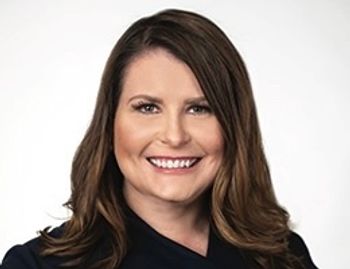
Health groups denounce Supreme Court ruling on affirmative action in college admissions
Medical schools had hoped the court would allow the consideration of race in admission decisions, but the conservative justices found it unconstitutional.
The Supreme Court delivered the ruling Thursday that many colleges, universities and medical schools had been dreading.
With a 6-3
Colleges and universities, including medical colleges, had urged the court to allow institutions to weigh race as one factor in admissions as they strive to improve diversity.
Healthcare organizations denounced the high court’s ruling and said it could undermine decades of work in improving diversity in colleges, universities and medical schools. They also said it’s especially critical to improve diversity in medical schools in order to add much-needed diversity to the nation’s physician workforce.
The ruling could hamper medical schools’ efforts to improve their diversity, said Jesse M. Ehrenfeld, president of the American Medical Association.
“This ruling restricts medical schools from considering race and ethnicity among the multiple factors in admissions policies and will translate into a less diverse physician workforce,” Ehrenfeld said in a statement. “Diversity is vital to health care, and this court ruling deals a serious blow to our goal of increasing medical career opportunities for historically marginalized and minoritized people.”
“While our country grows more diverse, historically marginalized communities have been left behind on nearly every health indicator,” Ehrenfeld added. “A physician workforce that reflects the diversity of the nation is key to eliminating racial inequities.”
Georges C. Benjamin, executive director of the American Public Health Association, said in a statement that he’s “incredibly disappointed” with the ruling.
“Without affirmative action, we risk turning the clock back on years of progress that have led to improved outcomes and a more diverse public health and health care workforce,” Benjamin said in the
“Affirmative action policies and programs have directly resulted in the diversification of the public health and health care workforce, with more practitioners of color working directly in communities that suffer some of the worst health disparities and outcomes,” he said. “With a more diverse public health and health care workforce, we can address and redress years of systemic racism that has sustained poorer health outcomes for our communities of color.”
Women account for more than half of all medical students, and medical schools are attracting more Black, Asian and Hispanic students, the AAMC says.
At the same time, the
Harvard University, which was involved in one of the cases that led to the high court’s ruling, issued a statement indicating that the institution would comply with the court’s ruling but pledged to continue to pursue individuals from a variety of backgrounds.
“For almost a decade, Harvard has vigorously defended an admissions system that, as two federal courts ruled, fully complied with longstanding precedent,” Harvard’s leaders said in a
Peter Salovey, president of Yale University, said in a
“The Court’s decisions may signal a new legal interpretation, but Yale’s core values will not change,” Salovey wrote. “Today, I emphatically reaffirm that Yale is fully committed to creating an inclusive, diverse, and excellent educational environment; to welcoming students of all racial and ethnic backgrounds; and to ensuring that our university is home to a diverse range of ideas, expertise, and experiences.”
The University of Michigan said it was “deeply disheartened by the court’s ruling,” but said it would continue to strive toward creating a more diverse community.
“We still wholeheartedly believe our dedication to academic excellence for the public good is inseparable from our commitment to diversity, equity and inclusion,” the university said in its






















































































